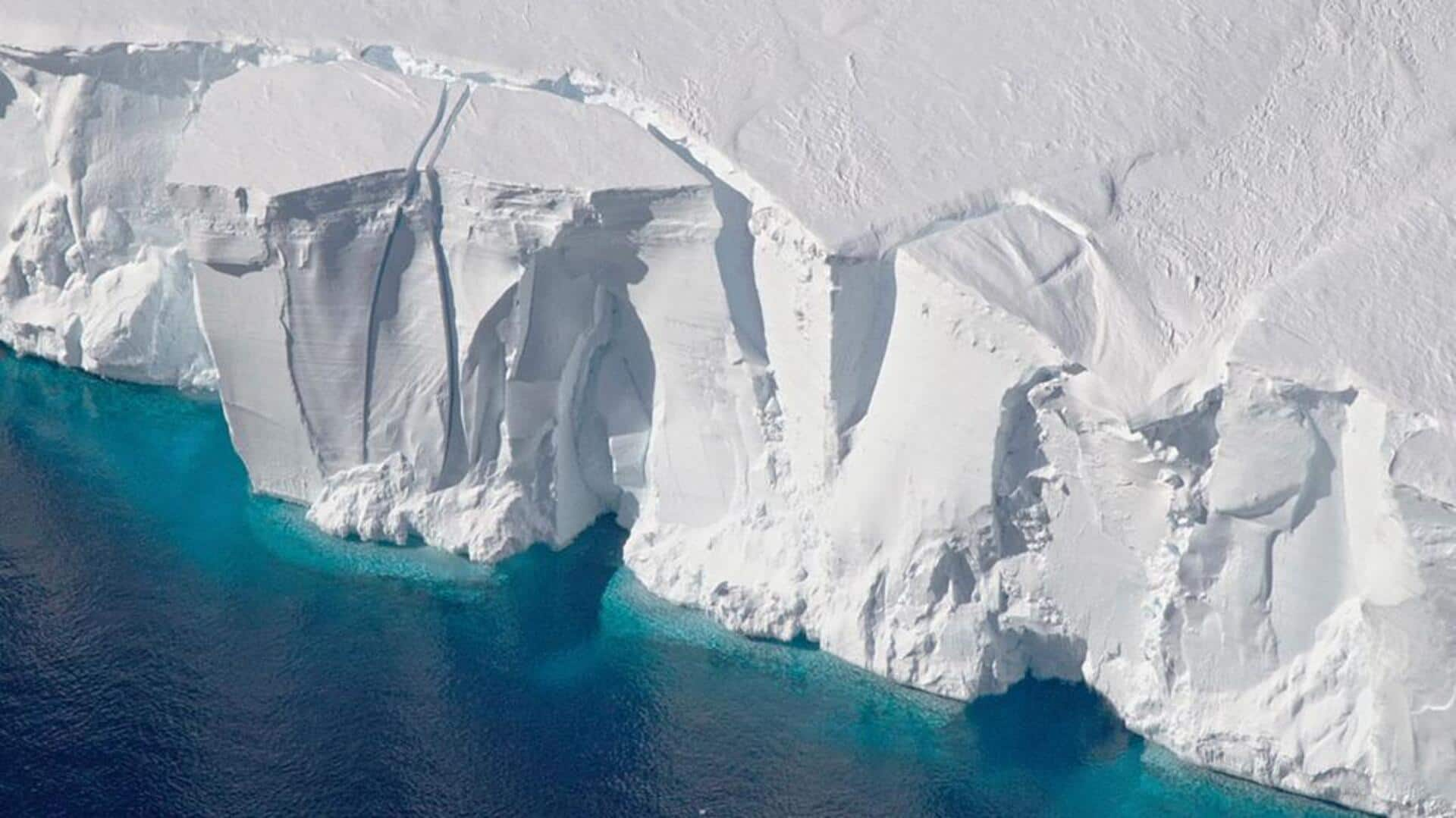
Antarctic winter sea ice melts to record low
What's the story
Antarctic sea ice has reached a record low this winter, covering only 16.96 million square kilometers, the lowest since satellite records began in 1979. This alarming decrease could pose a threat to wildlife, such as penguins who breed and feed their offspring on sea ice, and accelerate global warming by reducing the amount of sunlight reflected back into space. The summer Antarctic sea ice extent also hit an all-time low in February, surpassing the previous record from 2022.
Details
Sea ice in the polar regions changes with seasons
Sea ice around polar regions expands and contracts as seasons shift. In Antarctica, sea ice usually hits its minimum coverage at the end of the Southern Hemisphere's summer, in February, and reaches its maximum extent at the end of winter, in mid-to-late September. Less sea ice translates to less sunlight being reflected back to space, leading to warmer waters. Warmer ocean temperatures around Antarctica have already destabilized the Thwaites Glacier, which contributes to 4% of annual global sea level rise.
What Next?
Antarctica has experienced three record low-ice summers in 3 years
The recent shift toward record-low conditions has scientists worried that climate change is finally manifesting in Antarctic sea ice. While slowing trends in Antarctic sea ice have been less clear, researchers believe the continent is reaching a turning point similar to the Arctic. Shockingly, in the past seven years, Antarctica is said to have experienced three record-breaking low sea ice summers. A study claims these records suggest that "the underlying processes controlling Antarctic sea ice coverage may have altered."
Insights
'Human-led greenhouse emissions have contributed to lower sea ice levels'
The same study found that warming ocean temperatures, primarily caused by human-induced greenhouse gas emissions, have contributed to lower sea ice levels since 2016. It is crucial to protect the frozen parts of the world for several reasons, said Ariaan Purich, co-author of the study, adding that "we really need to reduce our greenhouse gas emissions." To note, this year's Antarctic winter sea ice is one million square kilometers less than the previous record set in 1986.